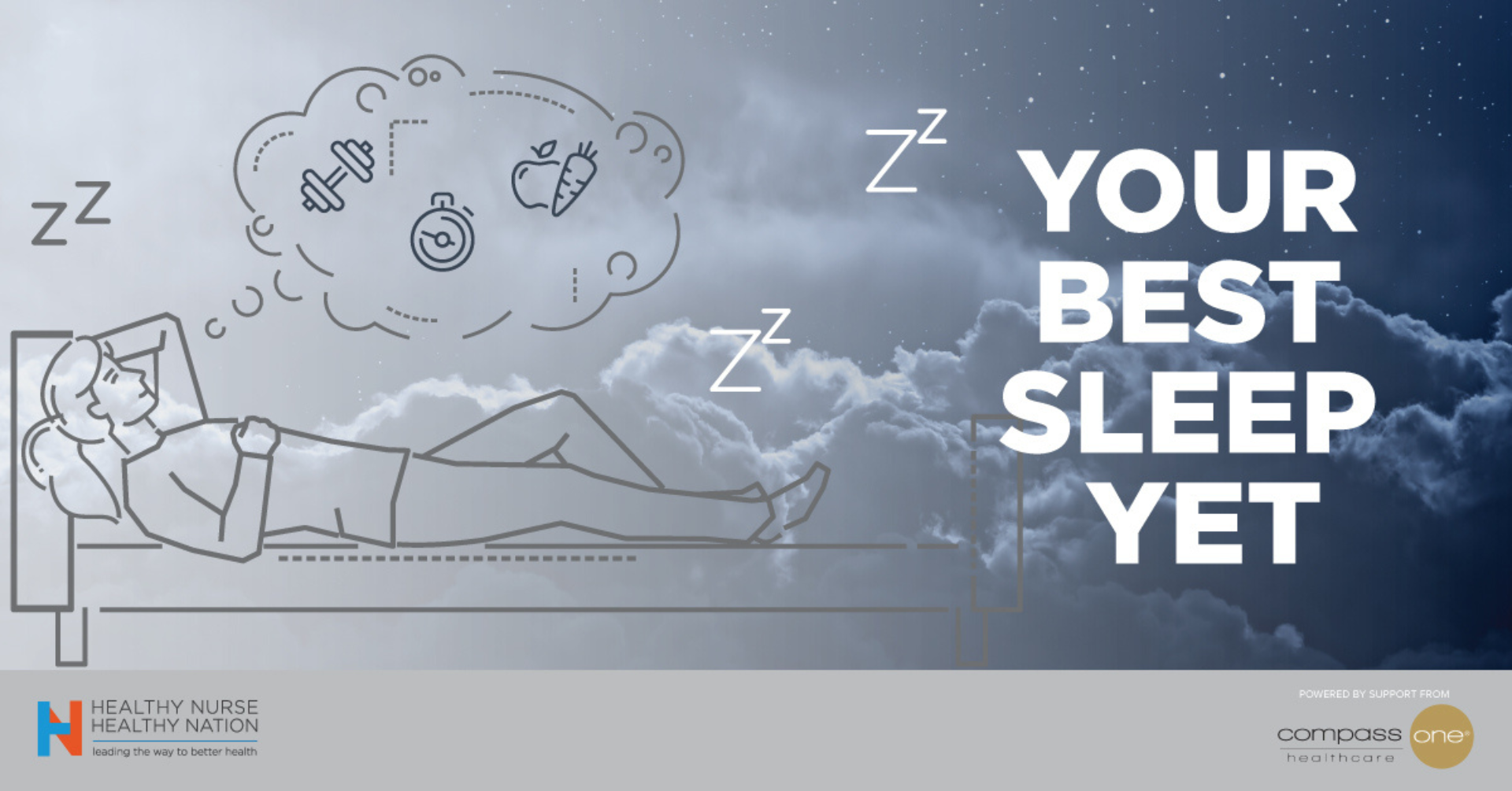There’s nothing like a good night’s sleep, yet so many of us rarely get it. Our HealthyNurse® Survey shows that nurses sleep an average of 7 hours per night, while the National Sleep Foundation recommends 7–9 hours. A study from the U.S. Bureau of Labor Statistics found that the average American sleeps 8.8 hours per day.
When it comes to sleep, it is important to listen to your body. Healthy sleep can:
- Improve productivity
- Reduce stress and anxiety
- Help ward off illness
- Improve your quality of life
Whether you have difficulty falling asleep or staying asleep, there are some habits and routines that help make restorative rest more than just a dream. You may even want to practice some of those meditation skills from our last challenge before you head to bed!
This challenge will provide tips on healthy practices to enhance your sleep hygiene. Some may be familiar, like establishing a bed-time routine, turning off all electronics, avoiding heavy meals, and not being physically active during the evening. But we’ll dive deeper to help ensure you sleep soundly.
Though this challenge has already concluded, please feel free to do this easy, 5 day challenge on your own with a colleague or friend!
Get started here.
Sponsored by support from Morrison Healthcare, a Division of Compass One Healthcare

Join Now - It's Free!
- The HealthyNurse Survey with customized results and recommendations
- Fun, engaging & inspiring monthly health challenges and blogs
- Chances to win health-oriented gifts
- An online community to connect you to others with similar goals – share stories &gain best practices
Log In or Join Now




How are you doing in the challenge?
healthcare provider right away when insomnia, depression, anxiety, and/or stress interfere with your
mental, emotional, and/or physical health.
Although you may just be adjusting to a new shift or something similar, it could be a deeper issue. Often depression disorder, anxiety disorder, OCD, movement disorders like restless leg disorder, narcolepsy,
sleep apnea, and more go undiagnosed and untreated. The fatigue, frustration, and often a sense of
despair that accompanies this profound tiredness and lack of sleep is draining and prevents us from
living our best life and providing our best care to patients. Seeing a trusted healthcare provider is vital.
They may recommend a sleep clinic, mental health screening, a psychologist, psychiatrist, prescriptions,
cognitive behavioral therapy, holistic care, or other interventions.
Non-traditional, holistic interventions may include hypnosis, aromatherapy, acupuncture, emotional freedom techniques, et cetera. Please also see additional resources such as our blog Mental Health Help for Nurses https://engage.healthynursehealthynation.org/blogs/8/3645 and ANA Enterprise’s Well-being
Initiative https://www.nursingworld.org/practice-policy/work-environment/health-safety/disaster-preparedness/coronavirus/what-you-need-to-know/the-well-being-initiative/ .